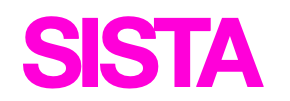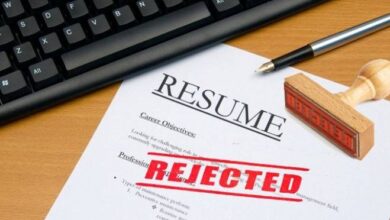10 Secrets For A Successful Job Interview

Whether you are a recent college graduate or a seasoned pro, the more you know about how to get and manage the job interview, the greater your chances for success. Skillful interviewers will ask questions on a variety of work-related subjects. They will probe your past performance in an effort to find clues to how you will perform in the future. They may even ask you something that’s considered inappropriate or even illegal. How you respond could make the difference between a bright new future and another rejection.
Below are a handful of tips that might not be obvious.
1) An interview is a conversation… A great interview should be a stimulating conversation. If the interviewer asks you a question, give a relatively short answer. I promise, they will ask for more information if they want it. But, if you keep talking and talking and talking, you will lose your audience, and the job. In fact, studies show that interviewers are more likely to have a positive response to candidates when the interviewer talks MORE than the candidate.
2) Pay attention to your verbal tics… If you want a professional job, then talk like a professional. Stop sprinkling your speech with, “Like” and “Ya Know.” When you see me making tiny hash marks on your resume, it is likely that I am counting the number of times you are saying, “like.” This is the easiest way to be eliminated as a potential candidate.
3) Speak with confidence… Don’t preface everything you say with “I think…” It weakens your message considerably. For example, if asked, “What role do you usually play on a team?” don’t say, “I think that I am a leader.” Instead, say, “I am a leader.” Are you a leader, or do you just “think” you are? The difference is important.
4) 90 seconds is all it takes… Within about a minute and a half your interviewer has made an assessment of you. If, after this short time, he or she has decided that you are a good candidate, then everything you say afterward will be viewed through that lens. However, if you haven’t made a positive first impression, it is likely downhill from there. So, make sure to dress appropriately, sit up straight, make eye contact, smile, and take that gum out of your mouth. All these things make a huge difference.
5) Find a hook… You might think that the hobbies and special skills you put on the bottom of your resume are just fluff. Really, they are conversation starters. Interviewers often begin by asking you about the things you do outside of work, such as your time spent living abroad, your collection of petrified wood, or your black belt in karate. More often then not, they will find a common interest, a shared experience, or something they want to learn. Don’t miss this opportunity to connect with your interviewer.
6) Be willing to learn… As alluded to above, you should always be ready to learn during an interview. Jeannie Kahwajy, an expert on organizational behavior, performed research that demonstrates that candidates who are willing to learn can turn negative interviews around. Jeannie ran experiments involving mock interviews. A recruiter was primed to have a negative bias toward a candidate. Of the three groups of candidates, one was instructed to prove they should get the job; one was told to learn from the interaction; and the final group, the control, was given no specific instructions. She found that the recruiter’s negative bias was reinforced for the control group and the group that tried to prove they should get the job. However, ALL of the candidates who set out to learn from the interaction reversed the recruiter’s negative bias and were offered a job.
7) It is all subjective… With all that said, the process is still incredibly subjective. During the interviews we ran this week, each candidate met with two pairs of interviewers. At the end of each day we compared notes on the candidates we met that day. In a remarkable number of cases, our opinions were quite different. Quite often one pair of interviewers loved a particular candidate and the other pair was not impressed at all. This happens so frequently that we aren’t surprised any more. So, keep in mind that a bad interview is just that, and gear up for the next one.
8) Don’t forget what you are there for
Your goal in the interview is to get as close to a job offer as possible. You may not get the offer after the first interview, but you should focus on getting an invitation for a second interview. Ask who will be interviewing you next. In addition, make it easy for your “customer” to buy by asking this question before leaving: “Where do we go from here?” You will want to know what happens next if you are not offered the job after the first interview and the only way to know is by asking. It’s also appropriate to say: “When do you expect to make a decision?” The bottom line is that your goal is to get a job offer sooner or later. Keep this in mind every time you interview.
9) Showcase your knowledge and integrity
As desperate as some employers are to find good help, most want employees who at least meet their minimum job requirements. HR personnel and some interviewers may not have an in-depth knowledge of every job in the company, but they understand enough to know that a certain level of technical expertise is mandatory. Don’t try to fake it and convince employers that you are someone you are not. This tactic seldom works. Even if it did work, the fact that you don’t know what you claimed you knew would soon become apparent once you are on the job.
10) Control nervousness
Thorough preparation is the number one way in which to control nervousness. Slow deep breathing will also help you to relax and feel more in control. Fill your lungs slowly from the bottom. Your abdomen should relax and puff out as you fill it with air. If you are breathing only with your chest you will be tense. Nervousness comes from being too focused on yourself. You may be worried about how you look, whether you sound intelligent, and how you are coming across to the interviewer. And if you are still a little nervous that’s okay. About the time you accept a little nervousness as a natural part of interviewing, a funny thing will happen; you will forget about being nervous.




